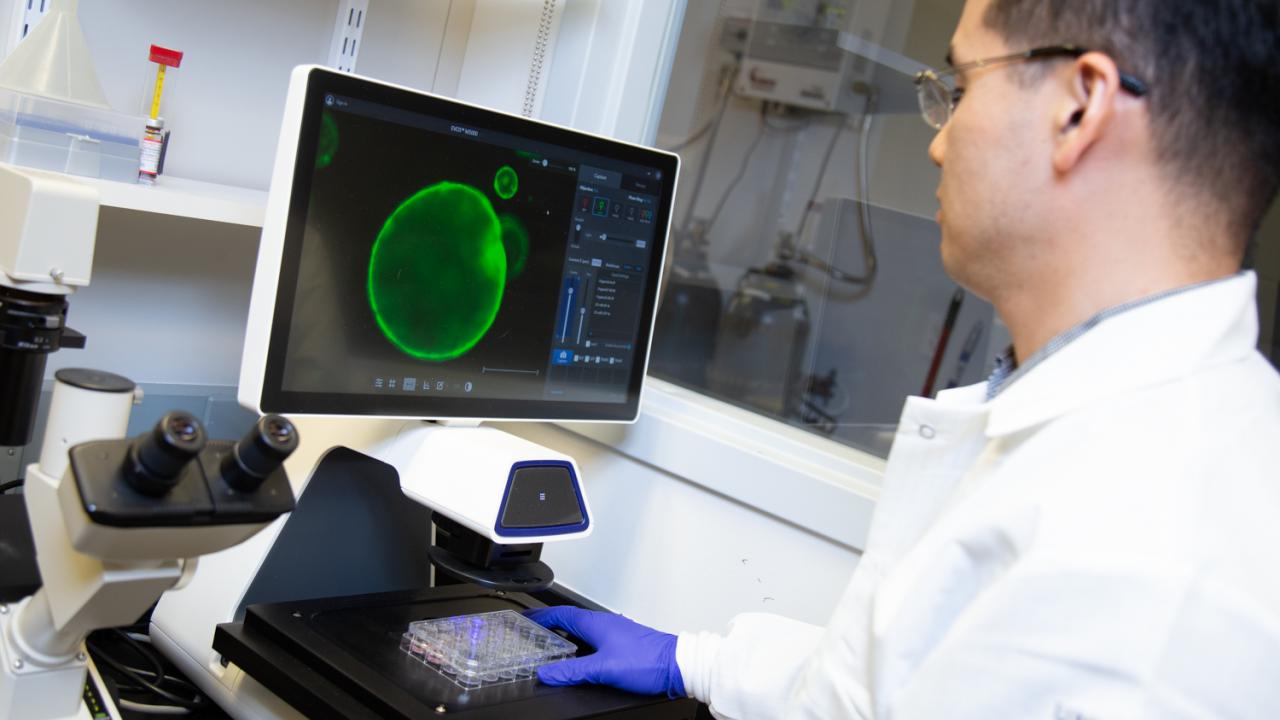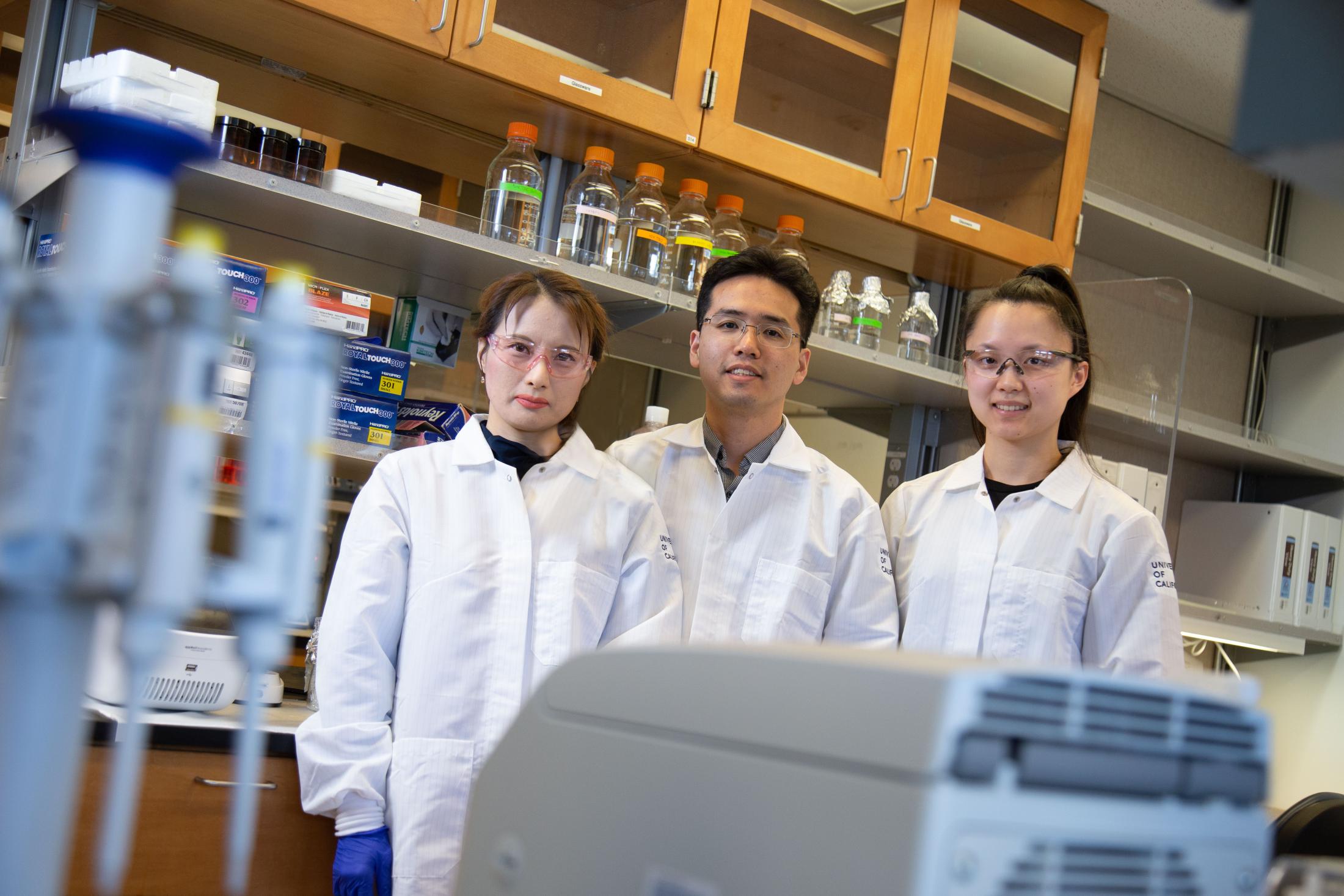
VIDEO: Building Mini-Organs to Fight Pancreatic Cancer
Assistant Professor Chang-il Hwang, Department of Microbiology and Molecular Genetics, studies pancreatic cancer, one of deadliest cancers. While it only accounts for 3 percent of cancers nationwide, 91 percent of patients succumb to the illness within five years of diagnosis. The problem is compounded because pancreatic cancer isn’t detectable until its late stages, when it’s spread to other organs. Since the pancreas is situated deep in the abdomen, tumors often escape detection, and physical symptoms usually don’t manifest until it’s too late. Hwang is using organoid models to help develop better cancer detection and therapeutic treatments.


Learn more about Assistant Professor Hwang in his Discovering Curiosity profile
When a healthy cell turns cancerous a cascade of events enables the cancer to spread throughout the body. But its origin lies within a single progenitor cell. Hwang is on the hunt to find methods to aid early cancer detection and better therapeutic treatments.
